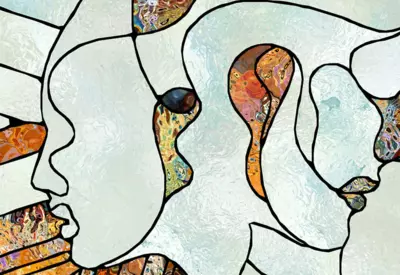We know psychedelics are being increasingly used to treat mental health conditions. But not enough is made of the effects they can have on healthy people. In this long-read article, Sam Woolfe argues that psychedelics go beyond simply being useful for mental health conditions, and explores some of the existential and philosophical import psychedelics can have. Woolfe argues that humans, and possibly even the universe itself, have an innate desire for increasingly novel experiences.
In many discussions surrounding psychedelics, there can be a tendency to focus on how these compounds alleviate various ills, instead of what they can positively add to people’s lives. This speaks to a more general theme in the psychological field, where there is a preference for trying to resolve the negative and maladaptive aspects of human experience while ignoring or undervaluing the promotion of positive thoughts, feelings, and behaviours. The latter is seen as secondary. This is why the approach of positive psychology originally emerged — it aimed to complement (not replace) psychology’s negative bias.
Helping individuals to function well and overcome emotional suffering should, of course, be prioritised, but human drives go well beyond functioning well and simply being free from suffering. People also have a strong desire for happiness, joy, inspiration, love, gratitude, resilience, and compassion. Positive psychology is the scientific study of how we can best help people to cultivate these mental states — in a nutshell, how to help people flourish.
 SUGGESTED READING
The self unlocked
By Peter Sjöstedt-H
It is uplifting to see how effective psychedelic therapy is in treating numerous conditions that are often difficult to treat, chronic, severe, and debilitating. [1] However, psychedelics also have the potential to increase the kinds of positive mental states already mentioned. By supplementing a positive psychological approach when discussing the benefits of psychedelics, we can see that many of these substances are helpful in terms of building strengths and enhancing life satisfaction. This applies both to people who are experiencing emotional distress and to those who are more or less feeling well and not in need of mental health treatment.
SUGGESTED READING
The self unlocked
By Peter Sjöstedt-H
It is uplifting to see how effective psychedelic therapy is in treating numerous conditions that are often difficult to treat, chronic, severe, and debilitating. [1] However, psychedelics also have the potential to increase the kinds of positive mental states already mentioned. By supplementing a positive psychological approach when discussing the benefits of psychedelics, we can see that many of these substances are helpful in terms of building strengths and enhancing life satisfaction. This applies both to people who are experiencing emotional distress and to those who are more or less feeling well and not in need of mental health treatment.
___
One particular positive state that psychedelics seem to elicit is existential joy.
___
One particular positive state that psychedelics seem to elicit is existential joy. This mental state can feel highly pronounced and meaningful during the experience, as well as remain, to some degree, for weeks, months, and years following the experience — perhaps even lasting a lifetime.
This essay will first describe what existential joy is and then elucidate how psychedelics can catalyse or manifest the various aspects of this particular kind of joy. I will draw on the ideas of Irvin Yalom, Martin Buber, and Friedrich Nietzsche with this aim in mind, and then present a concept that I call the will to novelty: the fundamental drive that humans have for the new and the different, which ties into psychedelic states. I will also connect this drive to psychological research and the metaphysics of Alfred North Whitehead, which can be called a philosophy of creativity: the view that the creation of novelty is the essential characteristic of the universe.
What Is Existential Joy?





















Join the conversation